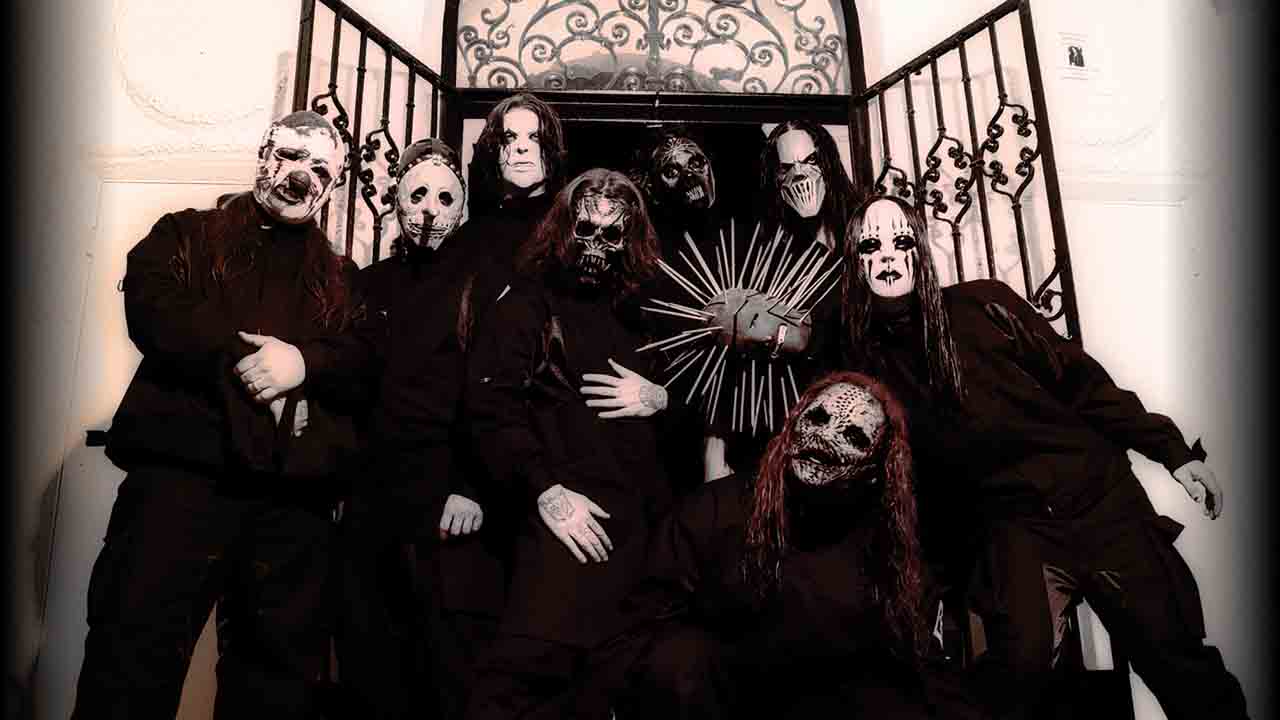
3. Deftones – Change (In The House Of Flies) (2000)
If they’d gone hard on 1995’s Adrenaline and mellowed slightly on 1997’s Around The Fur, 2000’s White Pony was the moment Deftones stepped back to make space for new textures and emotions. Frontman Chino Moreno had begun to experiment with the guitar, and even though guitarist Stef Carpenter felt defensive of his territory, the pair ended up writing Change (In The House Of Flies) together, giving the singer the confidence to spread his wings.
“Change… is probably one of the most successful songs of that record, of our career,” says Chino. “That spawned from him and I playing together, literally back and forth. Once we got something that we were sort of proud of, I was like, ‘Oh well, y’know, I can do this for real.’”
Simultaneously sinister, sad and erotic, Change… was an opaque story about a relationship conveyed through transformative imagery of insects. Chino’s lyric writing had progressed from throwaway outbursts on Adrenaline to world-building on Around The Fur, but this was something different. He was planting himself firmly in the realm of the cinematic, his breathy vocals adding a dreamlike dimension.
“I don’t remember writing about anything specific,” says Chino. “Now, in retrospect, I can kind of see who I was talking about and what I was trying to say, but by doing it in a more quote/ unquote ‘poetic manner’; sort of referencing the fly and pulling off its wings and laughing, putting myself as the antagonist, as the reason why this person is the way they are. Taking blame for that. Not to get too deep, but I didn’t realise what I was doing until way later on. I listen back to it and I think, ‘This is exactly what I was referring to’, relationship-wise. Being able to be metaphorical and do that kind of stuff, that’s one of the first times I actually started to enjoy writing lyrics.”
Key to Change…’s sound were the unnerving background wails from turntablist Frank Delgado, landing somewhere between a dying animal and a supernatural entity. Back then, he didn’t have a synthesiser, so he took a sample from a record and extended it using some pedals from Stef Carpenter, before pitch-bending it. The record in question is a secret to this day - “Most of the guys know what record it is, but back then, we shouldn’t have been doing that!” laughs Frank.
Deftones insisted Change… should be the first single from White Pony. With its atmospheric soundscape, it was unlike anything they’d done before – but that was the beauty of it.
“I had to fight the record label to make that a first single. They wanted us to come out with something more aggressive as the first song, and in my mind I just said, ‘I just want people to hear the best song first,’” Chino remembers. “And I think it’s truly the best song on the record.”
2. Slipknot – Duality (2004)
There’s a moment in Hollywood blockbuster Jurassic Park where the humans realise that the park’s rogue velociraptors, who have been stalking them, have learned to open doors. It implies that these cold, dead-eyed killers also have the intelligence to adapt to their surroundings, making them even more unstoppable than we first realised.
By 2004, Slipknot were in a similarly evolutionary state; due to unbelievable levels of spite and ferocity, 1999’s self-titled debut album and 2001’s more extreme follow-up, Iowa, had turned them into major metal superstars. They now commanded the highest spots on festival bills and headlined arenas the world over and, as exciting as blastbeats and nihilism were in those settings, they needed to show they could write anthems that would keep them there. Third album Vol. 3: (The Subliminal Verses) was more heavily saturated in melody than anything else Slipknot had written, while being no less intense, but it was the record’s lead single that really proved they were a band capable of genuine longevity.
From the opening moment of Duality, when Corey Taylor whispered about pushing his fingers into his eyes, Slipknot had our attention; slower, darker, more melodious and with a level of restraint that still seethed below the surface, it immediately felt like a very different beast.
“I first heard Duality when I was in secondary school, through a friend showing me the music video,” remembers Kadeem France, frontman of Loathe, one of many bands inarguably inspired by the song. “I love how heavy but melodic it is. It was, in a way, one of the first songs that got me into heavier music, kind of like a gateway song into the genre.”
Kadeem’s experience is unlikely to have been unique; the simmer, boom and bust dynamics of the song felt perfect for a wider audience. It elevated Slipknot as songwriters and, crucially, showed the band were willing to capitalise on their commercial success, with guitarist Mick Thomson admitting in 2008 that Corey had decided to try something different and move away from more “explicit lyrics”. Yet Duality is far from a sell-out pop song. Shawn ‘Clown’ Crahan’s distinctive keg smash and Mick and fellow guitarist Jim Root’s palm muted, groove metal riffs keep the verses chugging along until Corey, up until that point spitting his lyrics through gritted teeth on a lower register, erupts into the chorus, sounding as venomous and scabrous as ever. This expression of pain turned glorious, cathartic, primal roar struck a chord with young, confused and misunderstood people the world over.
“For me, it was mainly the message of the song,” Kadeem tells us. “It helped me cope with a lot of the troubles I was facing as a young teenager. I think it became an anthem for a lot of angsty teens and preteens, including me, back then and even still to this day.”
These feelings of outsider alienation were perfectly captured in the song’s music video, one of metal’s most enduring, featuring a selection of fans who destroy a house while the band rage inside. Simple in concept yet perfect for the emotion the song was trying to convey, it shows the very real bond between Slipknot and their army of Maggots, as well as bringing together a community of metalheads who were more used to being sneered at as nothing more than freaks and weirdos. As Kadeem tells us, “Instantly the video resonated with me, because of the representation of the misfits of the world and how chaotic it was as a whole.”
Duality immediately became one of Slipknot’s most beloved songs, peaking at No.15 in the UK singles chart – their highest-ever position – and selling more than 400,000 copies. But it wasn’t for another five years that it truly came of age, during Slipknot’s generation-defining Download headlining performance in 2009. The sound of 80,000 people bellowing the opening lyrics can still raise the hairs on the back of your neck.
“When I was in school, I used to watch a YouTube video of them playing Duality at Download 2009 religiously,” says Kadeem. “The way Corey only had to sing the first six words of the song and then the crowd erupted and finished the opening line used to get me so hyped.”
Today Duality is part of the fabric of our scene; it’s the moment Slipknot learned how to open the door to the mainstream, one of our signature anthems, and a rallying cry for Maggots to come together in shared catharsis.
